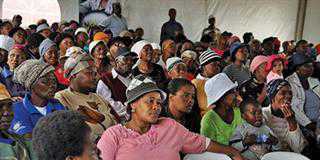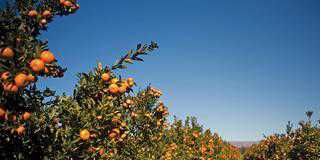Tell us the history of Free Range Dairy.
It’s an independent certification body that audits dairy farmers and processors against a comprehensive set of standards. It’s based on good farming practices that ensure cows are always healthy, happy and humanely treated. It prioritises stewardship of the environment, providing consumers with peace of mind about what they’re buying and consuming.
My father Allan and I started Free Range Dairy in 2009. My father has been a consultant in the dairy industry for over 35 years, and came up with the idea so that farmers and processors can differentiate their products.
There’s a negotiable service fee – a royalty calculated on a cents per litre basis – fully inclusive of the audit and certification. It’s paid by the processor, not the farmer. Processors have yet to implement a premium, however, this is probably in the pipeline.
Why should farmers comply with a new set of standards?
The global consumer trend toward more animal and environmentally friendly products means that “organic” and “free range” are becoming popular notions – but they’re often used as a marketing gimmick. There’s no current legal definition for free range for dairy in South Africa, leaving loopholes open to exploitation.
Some processors indiscriminately use “free range” on dairy products originating from a total mixed ration (TMR) system – the exact opposite of free range. This is misleading resulting only in a short-term benefit for the middleman, but if it continues the whole dairy industry will be tarnished. Free Range Dairy is a legitimate, fully traceable certification that adds long-term value to the industry, benefiting all involved – the farmer, the processor and the consumer.
How is the Department of Agriculture, Forestry and Fisheries (DAFF) involved?
DAFF has become aware of misleading advertising and is trying to curb it. As the only legitimate certification system, Free Range Dairy is working with DAFF to draw up a national free range standard for dairy farming. We’re also in discussion with DAFF’s Agriculture Product Inspection Services (APIS) for audits on our system.
Is this a preferable set of standards over organic or conventional dairying practices?
Absolutely! It’s difficult to run a truly organic economically feasible dairy, especially with the scepticism around “organic” as it’s often used fraudulently in South Africa.
Dairy farming is broadly categorised into the pasture-based and TMR systems. Various references show that milk from primarily pasture-based systems – more environmentally and animal friendly and natural – is superior in taste and quality to milk from cows housed and fed premixed conserved roughages and concentrates. Antioxidant levels, fat-soluble vitamin levels and beneficial fatty-acid content (conjugated linoleic acid and omega-3 fatty acids) are far higher in pasture-fed cows’ milk.
We believe in enhancing the whole dairy industry. We don’t condemn TMR systems. In some parts of the country, pasture-based systems aren’t feasible. We aim to improve standards of pasture-based dairy farming to give consumers good quality milk produced in an environmentally friendly way, where cows are in as natural an environment as possible.
How did you create your audit document?
Extensive local and international research showed that our audit had to take more than cows on pasture into account. We consider animal welfare, environmental integrity, safety, general farming practice and more. The certification is fully documented and important aspects are cross-checked with the attending veterinarian and the feed supply company.
Our audit is relevant and realistic – good pasture-based dairy farms should pass – and it consists of non-negotiable “deal breakers” and “point makers” that cumulatively require a minimum score to pass the audit.
Which deal breakers appear in the audit?
Additives, like hormones and the recombinant bovine growth hormone (rBST) are deal breakers – consumers don’t want that in their milk! If a milk label says it’s rBST-free, it must be; simple as that. If farmers use prohibited substances, they fail the audit, irrespective of how good their farms are.
What are some of the point makers?
We recommend improvements, looking at the milking parlour and surrounds, milking procedures, record-keeping, animal welfare, time spent on pasture and the dry-matter intake from pasture. We include things that have little to do with the milk’s quality, but are important to consumers. Like what happens to unwanted bull calves – the number one question asked by school children during one farm excursion. Or – how are alien plants being dealt with?
How’s the response to Free Range Dairy?
Two major retailers are excited – it should be on the shelves of one of them soon. There’s been a great response from the industry, government, retailers and public. Consumers want a product with certification – and they control the market.
Contact Kevin Penderis on 082 421 0056, e-mail [email protected] or visit www.freerangedairy.co.za.













